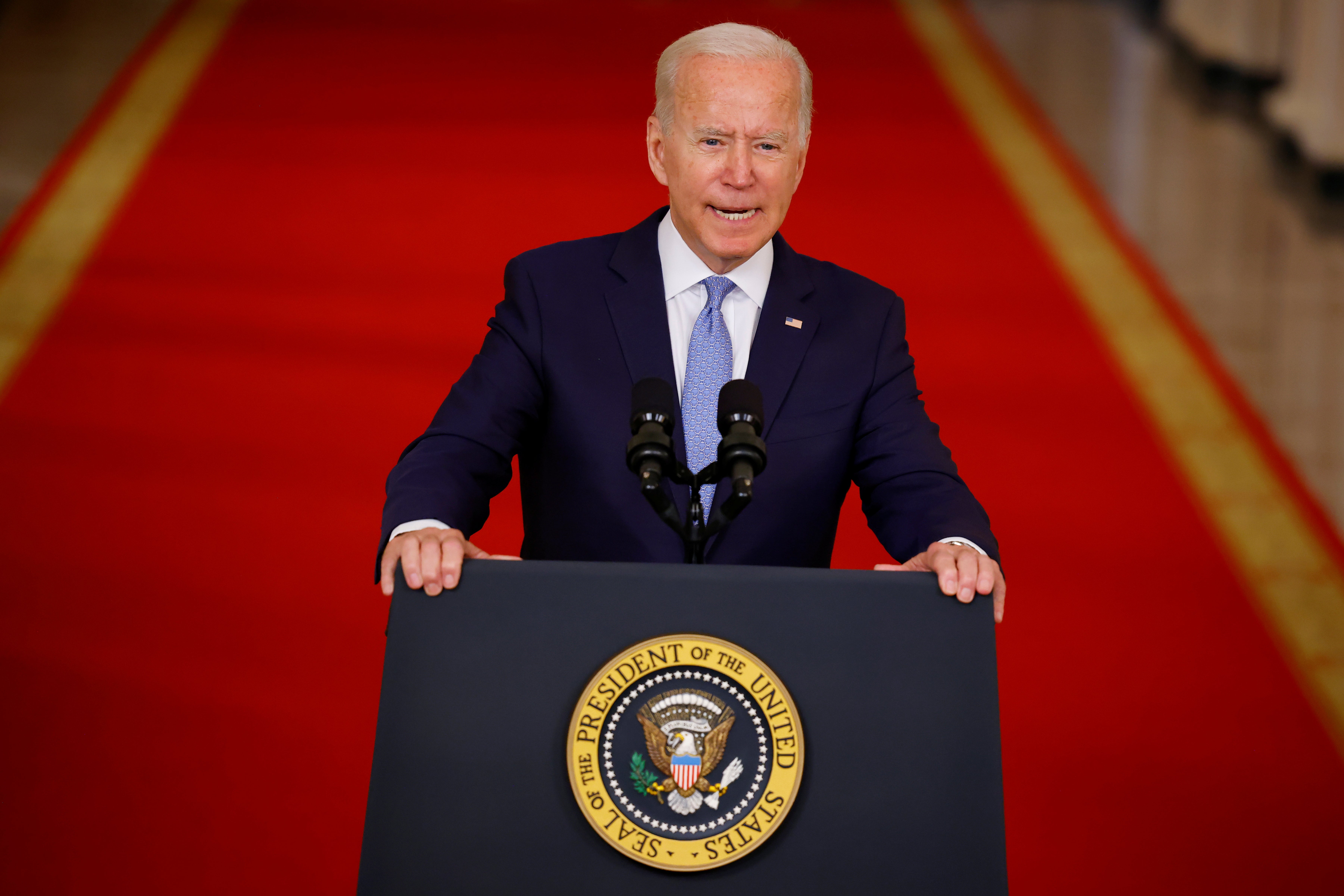Afghan interpreter who helped rescue Joe Biden from valley in Afghanistan left behind
A snowstorm had forced Mr Biden’s helicopter to land in a remote Afghanistan valley

Your support helps us to tell the story
From reproductive rights to climate change to Big Tech, The Independent is on the ground when the story is developing. Whether it's investigating the financials of Elon Musk's pro-Trump PAC or producing our latest documentary, 'The A Word', which shines a light on the American women fighting for reproductive rights, we know how important it is to parse out the facts from the messaging.
At such a critical moment in US history, we need reporters on the ground. Your donation allows us to keep sending journalists to speak to both sides of the story.
The Independent is trusted by Americans across the entire political spectrum. And unlike many other quality news outlets, we choose not to lock Americans out of our reporting and analysis with paywalls. We believe quality journalism should be available to everyone, paid for by those who can afford it.
Your support makes all the difference.An Afghan man who had saved US President Joe Biden in 2008, then a senator, when he was stranded in a remote Afghan valley after a snowstorm, is seeking his help to flee Afghanistan which is now under the Taliban rule.
In a message for Mr Biden, the interpreter, identified only by his first name Mohammed, said: “Hello Mr President: Save me and my family. Don’t forget me here,” reported The Wall Street Journal.
The interpreter has been left behind in Kabul even after days of intense rescue operation to evacuate US citizens, their allies and Afghan civilians. Mohammed, his wife, and their four children could not board the US military aircraft leaving Kabul International airport last month.
Thirteen years ago, he had worked as an interpreter with the US Army which had rushed to help the three senators — Mr Biden, John Kerry and Chuck Hagel — who were stranded after their helicopter force-landed due to heavy snowstorm in the region. Then 36-year-old Mohammed joined the US army motorcade which safely evacuated the three key US senators and braved more than 100 firefights in the valley, the report added.
He has been trying to leave Afghanistan with his family for years but the paperwork and bureaucracy have not made his attempt any easier.
The White House has acknowledged Mohammed’s request and underlined their commitment to get all their allies out of the country. In the daily briefing, press secretary Jen Psaki has thanked Mohammed for his efforts and said the US administration will honour his service.
“Our message to him is thank you for fighting by our side for the last 20 years. Thank you for the role you played in helping a number of my favourite people out of a snowstorm and for all the work you did,” Ms Psaki said.
Ms Psaki said that the administration’s commitment is enduring “not just to American citizens, but to our Afghan partners who have fought by our side and our efforts and our focus right now is … to the diplomatic phase.”
“We will get you out. We will honour your service,” Ms Psaki said.
Mohammed is among the several thousands of Afghan civilians who are desperate to leave the war-torn country which will now fall to the ultra conservative militant rule of the Taliban.
After camping at the Kabul Airport for more than two weeks in the hope to catch a flight out of the country, tens of thousands of people, including Afghan locals and allies of western countries, are now gathering at border points across Afghanistan.
In an intense and historic rescue operation, the US military evacuated more than 123,000 people from Kabul after the Taliban seized the city in mid-August.
Meanwhile, a political vacuum lingers in the south Asian country where the Taliban is yet to announce a new government or reveal how they intend to govern, unlike in 1996, when the insurgents formed a leadership council within hours of taking the capital.
Join our commenting forum
Join thought-provoking conversations, follow other Independent readers and see their replies
Comments